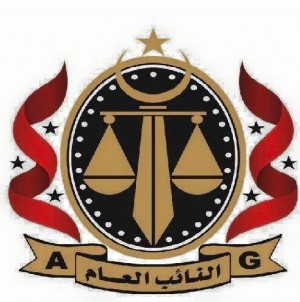By Sami Zaptia.

London, 2 October 2020:
Eight top Libyan officials, including a minister, have been arrested or charged with corruption, the Attorney General’s Media Office confirmed on Wednesday. The implicit confirmation came through the publication of a TV news report naming the accused by the Attorney General’s Media Office.
The eight officials are:
- The Local Government Minister of the Tripoli government
- His Deputy
- The Deputy Health Minister of the Tripoli government
- The Deputy Education Minister of the Tripoli government
- The Manager of the Libyan Foreign Bank (LFB)
- The Mayor of Bani Waleed
- The Manager of Sebha hospital
- The Manager of the Accounts Department of the Tripoli Finance Ministry
The move is unprecedented in the number of officials arrested/ordered to be arrested. On 27 September, the Tripoli Interior Ministry had announced that it had arrested former General Manager of the Projects Department of the state electricity monopoly, the General Electricity Company of Libya (GECOL). He was also a member of GECOL’s board of directors.
If those charged/arrested do indeed end up making court appearances, it would set a new realistic phase in the government’s drive to fight corruption.
It will be recalled that in September the internationally recognized Libyan government led by Faiez Serraj activated the Financial Disclosure Declaration forms for all top Libyan officials. Through this declaration all top Libyan officials declare their financial assets and wealth. It is intended to be an anti-corruption aid to help hold them accountable.
The move by Prime Minister, Faiez Serraj, called for the activation of this mechanism during his meeting in August with Libya’s three main official oversight bodies, the Administrative Control Authority (ACA), the Audit Bureau, and the National Anti-Corruption Commission (NACC). In that meeting Serraj had stressed his full support for the bodies to conduct investigations and inspections of all files related to corruption and waste of public funds.
It was in response to the Serraj initiative, at the beginning of September, the NACC discussed with the Serraj government activating the Financial Disclaimer declarations for top state employees.
The decision by the Serraj government to suddenly activate the Qaddafi-era disclaimer declarations come against the backdrop of a national public outcry against perceived rampant corruption in Libya’s state sector which partly fuelled some of the ‘‘23 August Movement” (Harak 23 August) protests.
The protests led to the arrest of demonstrators and the shooting at protestors by government-recognized forces in Tripoli. In the east demonstrators were also shot at and there were reports of at least one death. Protesters there burnt state buildings including the Prime Minister’s office, the parliament’s secondary location and a police station.
The protests and shootings also led to the temporary suspension by Serraj of his Interior Minister, Fathi Bashagha, and to a series of Serraj government decrees. He also announced he would be ready to resign by October if his replacement was agreed on.
The eastern Libyan government also handed in its resignation. UNSMIL had condemned both western and eastern government-recognized forces for using excessive force against the protesters.
https://www.libyaherald.com/2020/09/28/gecol-board-member-arrested-on-corruption-charges/
https://www.libyaherald.com/2020/09/30/libyas-anti-corruption-commission-discusses-recovery-of-corruptly-obtained-libyan-assets-and-funds/
https://www.libyaherald.com/2020/09/07/activation-of-financial-disclosure-declarations-and-identifying-groups-obliged-to-complete-them/
https://www.libyaherald.com/2020/09/29/eu-unodc-and-unicri-launch-anti-corruption-and-money-laundering-project-in-libya/
https://www.libyaherald.com/2020/09/16/finance-minister-is-the-first-to-hand-in-his-anti-corruption-financial-disclaimer/
https://www.libyaherald.com/2020/08/09/serraj-anti-corruption-drive-announces-his-full-support-for-oversight-entities-and-seeks-to-enforce-financial-disclosure-by-top-officials-report-and-analysis/






